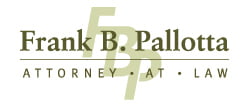In real estate closings, wire transfers are a standard and efficient way to move large sums of money between parties. But with that convenience comes risk: wire fraud is a growing threat. As your trusted real estate attorney, I want both buyers and sellers to understand the precautions needed to keep your funds safe. Below, I outline key dos and don’ts, as well as best practices, to prevent wire fraud during your closing, and assure you of my role in this process.
Understanding Wire Fraud: A Crucial Aspect of Real Estate Transactions
Before getting into practical tips, it helps to know how wire fraud in real estate often works:
- Cybercriminals infiltrate the email accounts of buyers, sellers, real estate agents, or lenders.
- They intercept or alter wiring instructions, sending fake account details to unsuspecting parties.
- Victims wire funds to fraudulent accounts, mistakenly believing they are paying the legitimate escrow or title company.
- Because wire transfers are final and often cross jurisdictional lines, recovery is extremely difficult once the funds are sent.
Given how devastating financial losses can be and how difficult it is to reverse transfers, prevention is essential.
The Do’s: Safe Practices for Wire Transfers
1. Confirm Wiring Instructions In Person or Over a Verified Call
Always verify any wire instructions you receive. Do not rely solely on email. Instead:
- Call your closing attorney’s office or title company using a phone number you obtained independently (not from the potentially fraudulent email).
- Ask to confirm in writing or via a secure, separate communication channel.
We emphasize this in our ALTA Best Practices compliance: “We do not accept or request changes to wire instructions via email or fax.”
2. Use Known, Secure Contact Information
Rather than responding to an email address that may have been compromised:
- Use known phone numbers or verified contact details from previous correspondence or from trusted sources.
- If you ever receive a last-minute “change” to wiring instructions, treat it as a red flag and verify it thoroughly.
3. Wire Funds Only to Verified Escrow or Title Accounts
Make sure:
- The account name and bank correspond to your attorney, title company, or escrow agent.
- The routing and account numbers are consistent with prior documentation.
- The receiving institution is a legitimate bank, not an obscure or offshore account.
4. Ask for Pre-Closing Wire Instructions
Well before closing:
- Request the wire instructions from your attorney or title company.
- Confirm them ahead of time, and when possible, have counsel provide them via a secure portal or in person.
- Save these instructions in a secure location rather than relying on an email thread.
5. Acting Quickly and Carefully: The Balance in Wire Transfers
Because sellers often expect funds soon after closing:
- Wire early on the day of closing when possible.
- Confirm with your bank that the wire was processed correctly.
- Retain all documentation (transfer receipts, confirmations) for your records.
6. Use Dual Authorization or Internal Checks
For real estate professionals, title companies, or attorneys:
- Implement internal controls: require two signatures or dual approvals for outgoing wires.
- Segregate roles so that the person verifying the wire is not the same person initiating it.
- Train staff to recognize phishing attempts, spoofed emails, or unusual requests.
The Don’ts: Mistakes that Invite Risk
1. Don’t Trust Email Alone
Never assume an email with wiring instructions is legitimate. Phishing and email hijacking are frequent paths for fraudsters.
2. Don’t Accept Last-Minute Changes Without Verification
If you receive a “changed” wiring instruction close to closing, even if it looks official:
- Resist the urge to rely solely on that email.
- Always call the known attorney’s or title company’s number to confirm.
- Treat changes as suspicious unless verified.
3. Don’t Use Email to Confirm Wires
Some fraudsters may even respond to your confirmation request with an email that appears genuine. Avoid confirming via email:
- Use direct phone calls or secure portals.
- If your attorney issues wire instructions through a secure client portal, use that instead of email.
4. Don’t Rush Blindly
Rushing because of time pressure is one of the best ways to lose vigilance. Even if the seller is anxious, do not skip verifications to meet a perceived deadline.
5. Don’t Provide Banking Info Broadly
Never share your banking credentials, account numbers, PINs, or other sensitive data through insecure channels. Only share necessary information with trusted parties.
6. Don’t Use Unverified Agents or Title Companies
Always work with attorneys, title companies, or escrow agents who follow industry best practices and whose legitimacy you’ve confirmed. Be especially wary of unfamiliar intermediaries or requests to send funds to third parties.
What Buyers and Sellers Should Do Immediately
- Buyers: Early in the contract process, ask your closing attorney about their protocol for wiring funds. Insist on a secure method of transmitting wiring instructions.
- Sellers: Be alert for fraudulent “overpayment” scams or bogus refund wires. Always confirm any refunds or excess funds with the attorney’s office directly.
- All parties: Retain a record of communications, confirmations, and receipts.
Why Our Firm Takes Wiring Security Seriously
At our law office, we follow ALTA Best Practices, which emphasize information security, wire verification, and escrow controls. Our wiring instructions are never requested or changed via email or fax, and we require independent verification before releasing any funds. In Georgia, O.C.G.A. § 44-14-13 governs funds over $5,000 and encourages the use of secure protocols for closing disbursements.
We are committed to giving you the clarity and protection you deserve. If you ever feel uncertain about any wiring instruction or request, call us immediately using a previously confirmed number. We’d rather delay a wire by minutes than expose you to long-term loss.
If you’re preparing to close on a property and want to ensure your wiring protocols are secure, reach out to us in advance. We’re here to guide you through safe procedure and sound legal practice.

